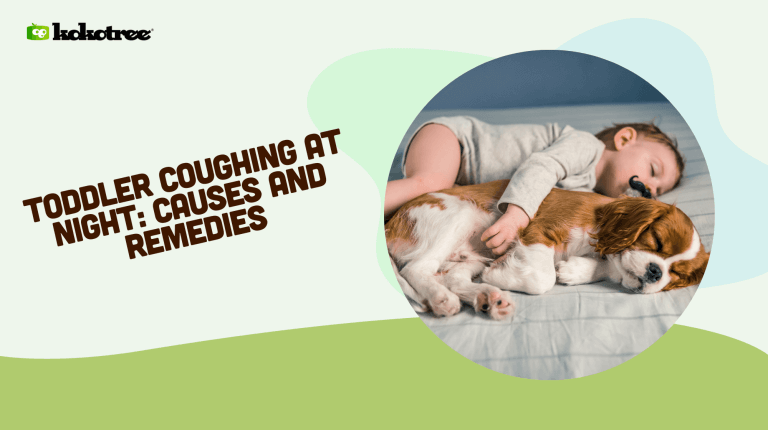

As parents, all we want is for our little ones to have a good night’s sleep, but a seemingly persistent cough can make this a challenging task for both toddlers and adults alike. Here’s a comprehensive guide on common causes of nighttime coughing in toddlers, and more importantly, some effective remedies and strategies to help your child sleep better.
Toddlers may cough at night due to various causes like allergies, infections, acid reflux, and asthma. Providing your child with a humidifier, allergy treatments, honey (for children over 1), or raising their pillow slightly can help alleviate the nighttime cough. However, it’s essential to consult your pediatrician for a proper diagnosis and personalized remedy for your child’s nighttime coughing.
Before we explore the remedies for toddler coughs at night, it’s essential to understand the common causes behind this sleep-disturbing symptom.
The following are the usual suspects:
Now that we have identified the common causes of nighttime coughing in toddlers, let us look at some tried and tested remedies and strategies to give both you and your little one the much-needed rest:
Even after trying these strategies to address your toddler’s nighttime cough, there might be times when it’s best to consult a pediatrician.
If your child’s cough persists or worsens, it could be an indication of something more serious for your toddler’s health. Reach out to your pediatrician if your child:
It’s always better to err on the side of caution and discuss your child’s symptoms with a pediatrician who can provide appropriate guidance and treatment plans based on your child’s unique needs.
Alongside the remedies and strategies mentioned earlier, here are some additional tips to prevent nighttime coughing and support your toddler’s overall health and wellness:
As you continue to search for effective solutions to help your child sleep better at night, remember that you are not alone. Depending on the cause of the cough, these remedies can significantly help alleviate your toddler’s nighttime coughing, allowing them to enjoy restful sleep.
With a thorough understanding of what works for your child and incorporating the right strategies, you will be well on your way to ensuring your toddler benefits from uninterrupted sleep and healthy growth.
We understand that nighttime coughing in toddlers can be concerning and raise many questions. In this FAQ section, we’ve compiled a list of common questions parents might have, along with brief, easy-to-understand answers to guide you in addressing this issue.
Yes, it can be normal for a toddler to cough more at night than during the day. Gravity and a change in body position while lying down may cause mucus to accumulate in the airways, leading to increased coughing at night.
You can help your toddler by providing a humidifier, treating their allergies, propping up their pillow slightly, offering honey (for children over 1 year old), or encouraging them to drink warm liquids before bedtime. However, always consult your pediatrician before implementing any remedies.
If your toddler coughs every night for an extended period, it’s essential to consult a pediatrician. Persistent nighttime coughing could be a sign of an underlying health issue that requires medical attention.
Yes, teething can cause a toddler to cough at night. Teething may lead to excessive drooling, which can irritate the throat or lead to a mild cough. However, if the cough is persistent, consider consulting a pediatrician.
If your toddler’s nighttime cough is accompanied by other allergy symptoms such as runny nose, sneezing, or itchy eyes, it could be due to allergies. Seeking a proper diagnosis from a pediatrician will help confirm the cause and provide appropriate treatment options.
Yes, humidifiers can help with toddler coughs. A cool-mist humidifier adds moisture to dry air, which can help loosen mucus and alleviate cough and nasal congestion. Just ensure the humidifier is clean to prevent mold and bacterial growth.
Consult your pediatrician before giving your toddler cough medicine. Many over-the-counter options may not be safe or effective for young children. Your pediatrician can recommend appropriate treatment options based on your child’s specific needs.



